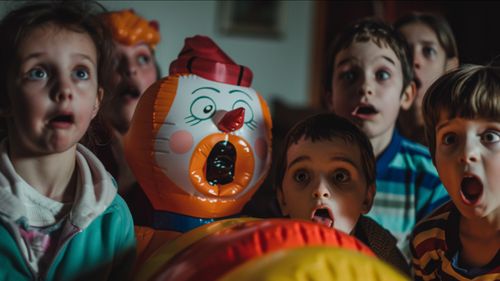Bandura's Bobo Doll Experiment: How an inflatable doll changed our view of violence
Mar 19, 2024 · 2 mins read
0
Share

In 1961, Albert Bandura began an experimental study to see if aggressive social behaviors can be acquired by observation. How? He let children watch an adult beat the hell out of a doll called Bobo. What happened next would challenge our understanding of violence…
Save
Share
The children mimicked the aggressive behavior on show – revealing how easily aggression spreads. We're not born violent. It’s not inherent. It’s learned.
Save
Share
Bandura's Bobo doll experiment was a game-changer, but its true impact went far beyond kids hitting inflatables. It sparked a revolution in how we understand human behavior - introducing the concept of social learning theory to the world.
Save
Share
At its core, social learning theory posits that we learn by observing others' behavior, attitudes, and the outcomes of those behaviors. This shifted psychology away from pure behaviorism and gave agency back to the individual as an active processor of information.
Save
Share
The implications were vast, offering new insights into aggression, moral development, self-regulation, and more. It challenged the nature vs. nurture debate, suggesting behavior is a continuous interaction between cognitive, behavioral, and environmental influences.
Save
Share
But Bandura didn't stop there. His later work on self-efficacy - our belief in our ability to succeed - was equally groundbreaking. It demonstrated how our thoughts, not just actions, powerfully shape our realities and motivation, with proven applications in health and education.
Save
Share
While the Bobo doll became the mascot, Bandura's true legacy was rethinking human functioning as a dynamic interplay of personal, behavioral, and environmental factors - forming the basis of many cognitive-behavioral therapies used today to overcome phobias, depression, and more.
Save
Share
Importantly, social learning theory empowered us. If we learn from social cues, we can reshape behavior by exposing people to new models and building self-beliefs. This informed everything from media psychology to workplace diversity training aimed at curbing biases.
Save
Share
Ironically, while studying aggression, Bandura highlighted our tremendous capacity for prosocial behavior when exposed to the right influences - suggesting mass media could be leveraged as a force for good by showcasing uplifting role models and their positive consequences.
Save
Share
Decades later, social learning remains one of the most influential theories in psychology - fundamentally reframing how we understand socialization, personality, and behavioral change. And yes, maybe it'll make you think twice about beating up that stuffed animal.
Save
Share
0